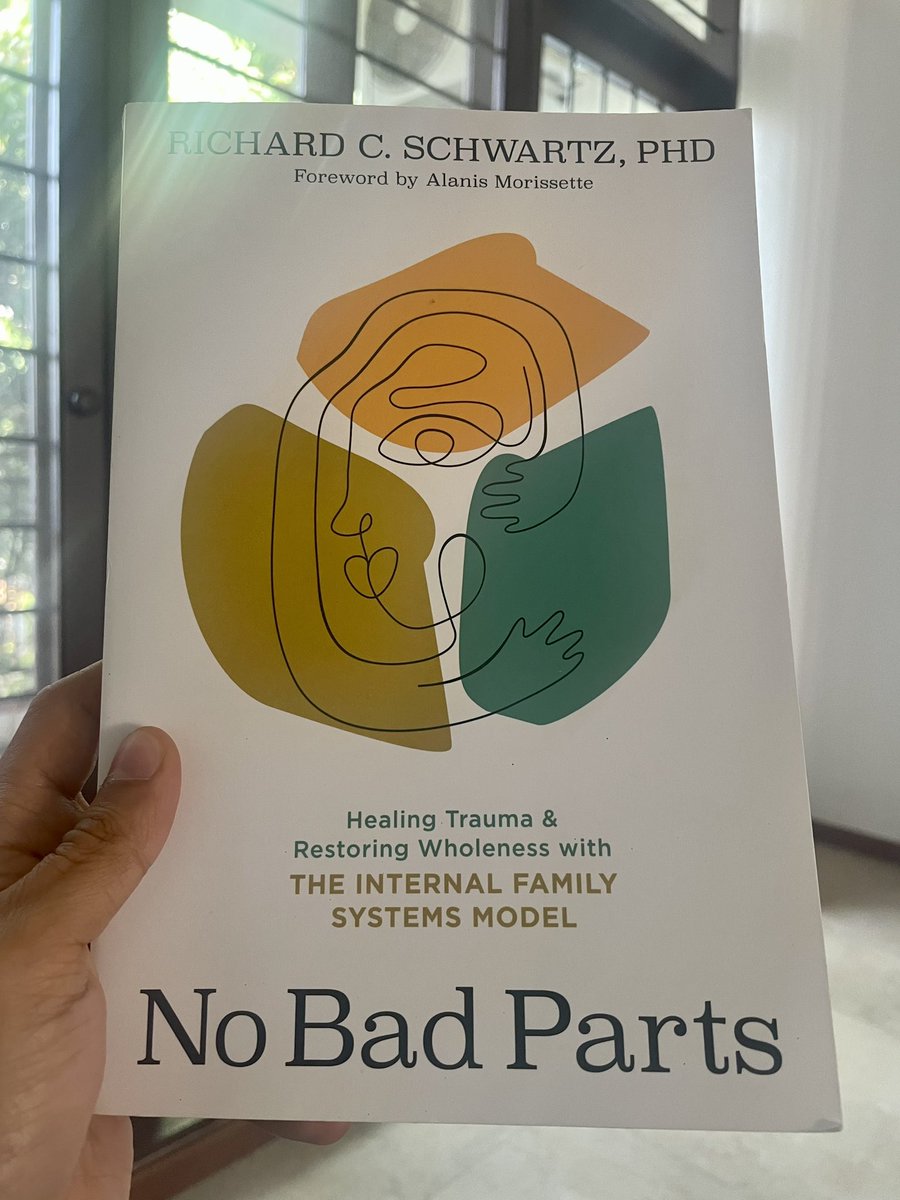
This introductory #book on Internal Family Systems (IFS) by the founder of IFS gives a new perspective on what it means to “fix yourself”.
I highly recommend reading about IFS, if not from the book, maybe an online article.
I highly recommend reading about IFS, if not from the book, maybe an online article.

1/ The core idea of IFS is that we are composed of several parts, and that some of the parts are stuck in their childhood.
In short, all issues in adulthood can be traced back to what we experienced as a child.
(IFS is a type of psychoanalysis).
In short, all issues in adulthood can be traced back to what we experienced as a child.
(IFS is a type of psychoanalysis).
2/ An example of a part being stuck in childhood.
As a child you want attention from your parents and felt abandoned when they didn’t give you that.
As adults, the same part may come to expect the same from relationships and react negatively when the partner is distracted.
As a child you want attention from your parents and felt abandoned when they didn’t give you that.
As adults, the same part may come to expect the same from relationships and react negatively when the partner is distracted.
3/ I can’t summarise the whole thing.
But the key to “fixing yourself” is to realising that it’s not you who needs fixing but a part of you that’s still stuck in childhood fancies or fears.
Surprisingly, I was able to distinguish multiple parts inside me and talk to them.
But the key to “fixing yourself” is to realising that it’s not you who needs fixing but a part of you that’s still stuck in childhood fancies or fears.
Surprisingly, I was able to distinguish multiple parts inside me and talk to them.
4/ Talking to parts means convincing them that you’re an adult now and that they can feel safe and protected.
This sounds woo-woo, but it sort of works.
This sounds woo-woo, but it sort of works.
5/ I didn’t find science behind this, but it roughly aligns with intuition that there is no self in the brain but rather different networks of neurons.
It’s possible some networks remain “stuck” and talking to those networks is simply a way of getting them “unstuck”.
It’s possible some networks remain “stuck” and talking to those networks is simply a way of getting them “unstuck”.
6/ Overall, IFS helped me.
Now, if I feel any negativity towards myself or others, I try to probe what part of me is causing it and why. Then I talk to that part and try to reason it out.
Now, if I feel any negativity towards myself or others, I try to probe what part of me is causing it and why. Then I talk to that part and try to reason it out.
7/ Example of taking to myself
https://twitter.com/paraschopra/status/1617143367548403713
8/ That’s it!
Have you tried IFS or some similar psychotherapy? How was it.
If you have more resources on the science of psychotherapy or IFS, let me know.
(Still not 100% convinced of all adult issues can be traced to childhood but most perhaps do)
Have you tried IFS or some similar psychotherapy? How was it.
If you have more resources on the science of psychotherapy or IFS, let me know.
(Still not 100% convinced of all adult issues can be traced to childhood but most perhaps do)
• • •
Missing some Tweet in this thread? You can try to
force a refresh







